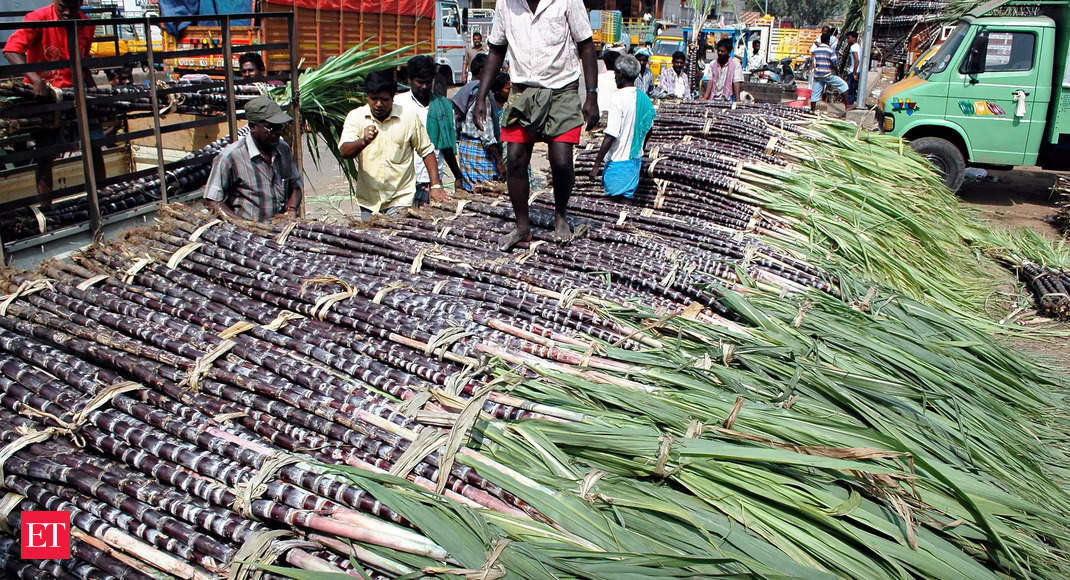The Maharashtra government has imposed restrictions on sugarcane farmers from selling their produce outside the state in a bid to ensure that there is enough cane for the state’s mills to run at maximum capacity. Maharashtra, the country’s second-largest sugar producer, is facing a drought-like situation due to erratic rainfall, which has led to a drop in sugarcane yield. With lower availability of cane, there is intense competition among sugar factories to secure the crop, resulting in mills poaching cane in each other’s jurisdiction. Farmers prefer to sell sugarcane to the mills that pay higher prices.
The Maharashtra State Cooperative Sugar Factories Federation, also known as Sakhar Sangh, has written to the state government highlighting the need to take measures to ensure the availability of sugarcane for the sugar mills in the state. They have warned that the co-operative sugar mills are likely to face an acute shortage of sugarcane, which could reduce the number of days for which they can operate, ultimately leading to losses.
This decision by the Maharashtra government to restrict the sale of sugarcane outside the state aims to address the concerns raised by the federation. By ensuring that sugarcane is reserved for the mills within the state, it is hoped that the mills will be able to operate without significant disruptions.
The restrictions on sugarcane supply come at a time when Maharashtra is grappling with a challenging agricultural situation. The state’s sugar mills heavily rely on a steady supply of sugarcane to maintain their operations. However, the drought-like conditions and reduced yield have posed a significant threat to the sugar industry in Maharashtra.
The state government’s decision will have an impact on the farmers who were previously able to sell their cane to mills outside Maharashtra. However, the intention behind this move is to prioritize the running of the state’s mills and mitigate potential losses caused by the shortage of sugarcane. By restricting the export of sugarcane, the government aims to ensure that the mills have access to enough cane and can continue their operations with minimal disruptions.
It is important to note that the restrictions on sugarcane supply are a temporary measure to address the immediate challenges faced by the industry. The hope is that with improved weather conditions and higher sugarcane yields in the future, these restrictions can be lifted, allowing farmers to resume unrestricted trade.
In conclusion, the Maharashtra government’s decision to restrict sugarcane farmers from selling their produce outside the state is a response to the challenges posed by the drought-like situation and reduced sugarcane yield. The government aims to ensure that the state’s sugar mills can continue to operate at maximum capacity by reserving an adequate supply of cane for them. While this may impact the farmers who used to export their cane, the intention is to safeguard the operations of the mills and mitigate potential losses. It is crucial for the industry and the government to work together to find long-term solutions that promote sustainability and resilience in the face of such challenges.











